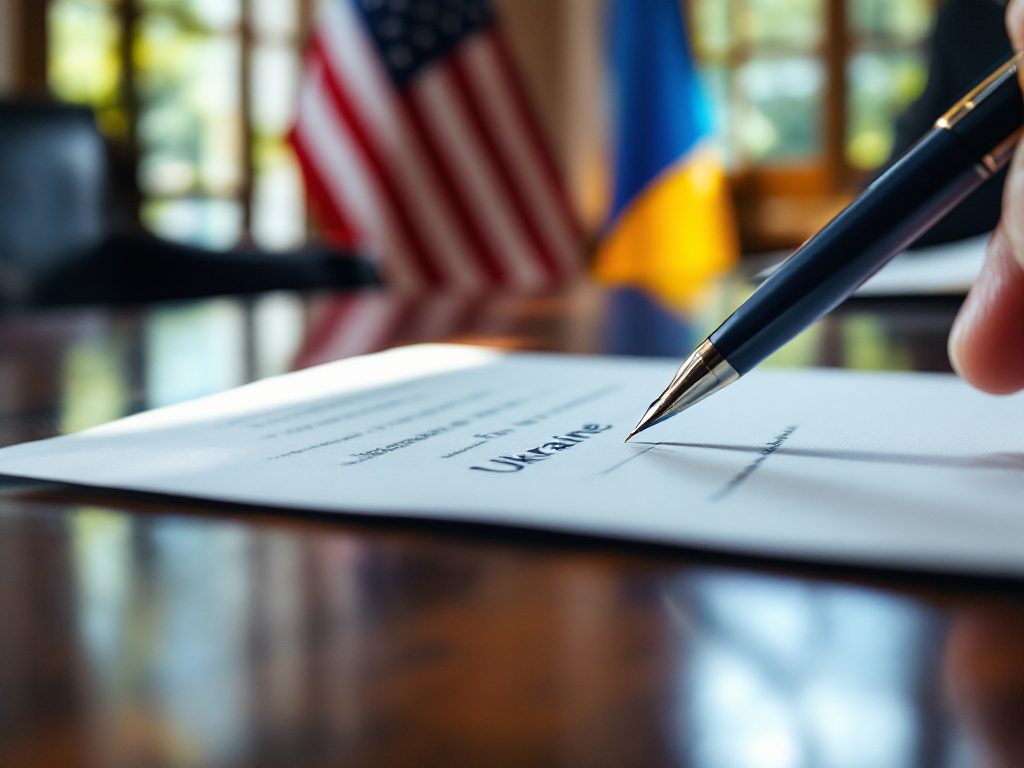At the Crossroads of Conflict: A Complicated Diplomatic Shuffle
Inside the marble halls of the State Department, newsrooms buzzed with a development that few could ignore: Julie Davis, the seasoned U.S. Ambassador to Cyprus, was unexpectedly tapped to serve as interim chargé d’affaires in Ukraine by President Donald Trump and Secretary of State Marco Rubio. In an era defined by the largest land war in Europe since the 1940s, this diplomatic appointment carries enormous consequence for not just Ukraine, but for the very fabric of U.S. foreign policy.
Why such urgency? The sudden resignation of outgoing ambassador Bridget Brink—prompted by mounting political tensions with the Trump administration—left a glaring leadership vacuum as the U.S. attempts to broker a peace settlement between Ukraine and its formidable neighbor, Russia. “Washington can ill afford indecision at such a pivotal juncture in Eastern Europe,” argues Fiona Hill, a renowned Russia and Eurasia specialist at the Brookings Institution. Dissent within diplomatic ranks further illustrates a wider malaise afflicting America’s Ukraine strategy, threatening to undermine years of painstaking progress since Russia’s initial invasion in 2014.
Rather than appoint a full ambassador—whose confirmation would require lengthy Senate hearings—Trump and Rubio have opted for an expedited, interim solution. Yet this maneuver also exposes a deeper truth: even critical diplomatic appointments are not immune from domestic politics, especially when partisan battles risk spilling across foreign battle lines.
Who is Julie Davis? A Diplomat Tested by Crisis
A closer look reveals why the administration’s decision to entrust Davis with two embassies at once is both a gamble and a signal. Davis is no stranger to high-stakes geopolitics. Over thirty years, she’s served as ambassador to Belarus, was deputy permanent U.S. representative to NATO, and held key posts across Western Europe and the EU—a resume that shouts institutional gravitas and hard-won expertise. Her reputation for deft negotiation in tense environments, from Eastern Mediterranean gas disputes to conflict mediation in post-Soviet republics, offers hope that she can steer U.S.-Ukraine relations through stormy waters.
Yet the context of her appointment cannot be separated from its politics. Brink’s departure, confirmed by reporting from The Washington Post, stemmed from “irreconcilable differences” with the Trump administration, particularly around the White House’s wavering commitment to Ukraine’s independence and territorial sovereignty. Choosing Davis—who will serve double-duty, remaining U.S. ambassador to Cyprus—suggests that the administration values loyalty and flexibility over building lasting, on-the-ground expertise in Kyiv. According to Harvard historian Serhii Plokhy, “Such appointments betray a pattern of improvisation in American diplomacy, where institutional continuity is too often sacrificed for short-term convenience.”
“The risks of overstretching proven diplomats are real—America fails Ukraine not just with bombs and guns, but with uncertainty and divided attention.”
Beyond that, Davis’s expanded responsibilities are also expected to benefit Cyprus: State Department insiders note that her dual post increases Nicosia’s access to U.S. policymakers at the Pentagon and National Security Council, potentially reshaping Mediterranean security arrangements during her tenure. Still, advocacy groups point out that doubling up such critical diplomatic roles risks signaling diminished U.S. commitment to Ukraine, just as Kyiv’s pleas for sustained support grow more urgent with each passing month.
The Stakes for Ukraine and U.S. Global Standing
No one doubts Julie Davis’s acumen or dedication—what’s at issue is whether the Trump administration’s approach sends the right message to allies and adversaries alike. While the Biden years witnessed unprecedented bipartisan support for Ukrainian self-determination, the current pivot toward temporary, multi-hatted envoys marks a clear break from that tradition. European allies, already anxious about American wavering, might see this as a downgrading of engagement right when a united front is most needed.
Historical precedent provides a sobering perspective. Diplomatic shortfalls in crisis zones—from Saigon in the 1970s to Kabul in recent years—have often preceded catastrophic setbacks for liberal, democratic aspirations. Reducing the U.S. diplomatic footprint or turning to interim placeholders, as experts like Jane Harman (Wilson Center) point out, can dent Washington’s credibility with frontline allies. Ukraine, after all, remains at risk of political sabotage, Russian aggression, and internal strife—areas that require unwavering, full-time diplomatic attention.
Voters and policymakers alike must grapple with an uncomfortable truth: meaningful support for democracy abroad demands more than words and weapons. It requires trusted, empowered representatives on the ground—professional diplomats who can advocate for human rights, fair elections, and sustainable peace in partnership with local actors. Administrative convenience should never eclipse the nation’s moral and strategic commitments.
Is this appointment a pragmatic response to D.C. gridlock, or a worrisome sign of declining U.S. seriousness? You can’t help but recall the words of Eleanor Roosevelt: “Justice cannot be for one side alone, but must be for both.” We must ask whether our diplomatic choices today serve not just America’s interests, but those of embattled Ukrainians whose futures hang in the balance.
As Julie Davis steps into her new (and temporary) Kyiv office, much of the world will be watching—judging not only her diplomatic finesse, but the readiness of a superpower to stand, unwaveringly, on the side of democracy when it is needed most. Will the United States rise to the occasion, or will the optics of divided attention haunt its legacy on the eastern front?

